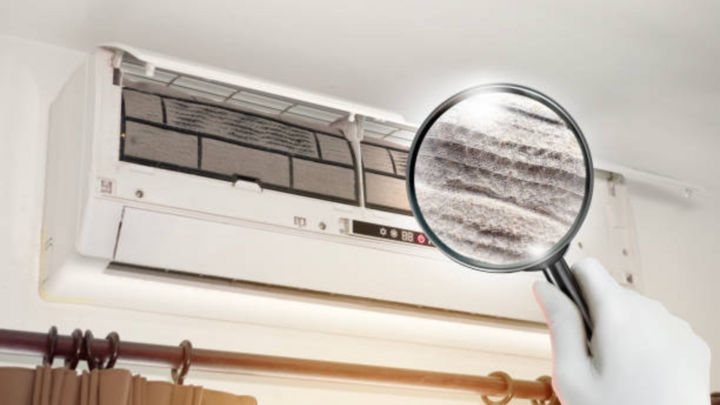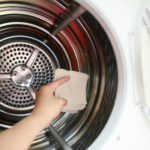Air conditioning units are essential for regulating temperature and humidity in enclosed spaces, especially with the ever-changing climate and rising global temperatures. As a result, air conditioners have become increasingly prevalent, particularly in smaller or more enclosed spaces and homes with young children.

Here are some effective tips to eliminate unpleasant odors from your AC and protect your family’s health. (Photo: Istock)
Aside from temperature and humidity control, AC units also improve air circulation, filter dust, and remove harmful substances from the air. However, one common issue that arises over time is unpleasant odors emanating from the unit.
Effective Tips to Eliminate AC Odors
Not only are these odors unpleasant, but they can also be detrimental to your health. Here are some effective tips to eliminate AC odors:
Regularly Clean the Air Filter
The air filter in your AC unit accumulates a significant amount of bacteria, dust, and mold over time. Therefore, regularly cleaning the air filter is crucial to eliminating odors. Remove the filter, wash it thoroughly with warm water and soap, dry it completely, and then reinstall it. Aim to do this at least once every 2-3 months or as recommended by the manufacturer.
Utilize Natural Deodorizers
Natural deodorizers such as vinegar and essential oils are effective in eliminating odors without causing any harm to your health. Vinegar, a natural disinfectant, can kill bacteria and neutralize odors. Mix equal parts vinegar and water in a spray bottle and spritz it onto internal and external AC components.
Certain essential oils, like eucalyptus, peppermint, lemon, and lavender, are also excellent odor neutralizers. Simply place a few drops of your chosen oil on a cotton ball and leave it near the AC unit.
Activated charcoal is another effective natural deodorizer. Placing it in the room will help absorb unpleasant odors from the AC unit. Activated charcoal is highly effective at absorbing and eliminating unpleasant smells.
Control the Humidity in the Room
AC units operating in high-humidity environments are more prone to mold and mildew growth, which can lead to unpleasant odors. Therefore, controlling the humidity in the room is essential. Consider using a dehumidifier to reduce moisture levels and prevent mold growth. Ensure proper air circulation by opening windows and using fans.

A range of effective tips are available to eliminate unpleasant AC odors. (Photo: Istock)
Regular AC Maintenance
Regular maintenance is key to ensuring your AC unit functions optimally and preventing odor-causing issues:
Inspect and Clean the Ductwork: The ducts and valves can be a source of odors if they become dirty or malfunction. Have them inspected and cleaned at least once a year.
Manage Condensate Drainage: Regularly clean the AC’s drainage system to prevent mold and bacterial growth. If the system becomes clogged, water will not drain properly, leading to musty odors.
Clean the Evaporator and Condenser Coils: These coils are crucial components of the AC system and tend to accumulate dust and mold. Use a soft brush or a gentle stream of water to clean the evaporator coils. For the condenser coils, which are usually outdoors and prone to collecting dirt, leaves, and debris, use a mixture of water and diluted vinegar to clean them thoroughly.
Use the Appropriate Operating Modes
Most AC units offer various operating modes. Refer to the manufacturer’s recommendations and utilize the appropriate modes to enhance efficiency and reduce odors. The Dry mode is particularly useful for removing moisture from the air and inhibiting mold and bacterial growth. Additionally, use the fan mode when you don’t require intense cooling to improve air circulation.
Important Considerations When Using Air Conditioning
In addition to implementing the above tips, keep the following in mind:
– The ideal AC temperature is 26°C, as it strikes a balance between comfort and health.
– The optimal height for installing an AC unit is 1.7 meters above the ground.
– When using the AC, consider placing a humidifier or a bowl of water in the room to add moisture to the air.
– Avoid turning on the AC immediately after coming indoors from the hot sun. Allow your body to adjust to the temperature change to prevent heat stroke or other health issues.
– Refrain from constantly turning the AC on and off, as this can lead to increased energy consumption and reduced appliance lifespan.
Source: VTC news






































